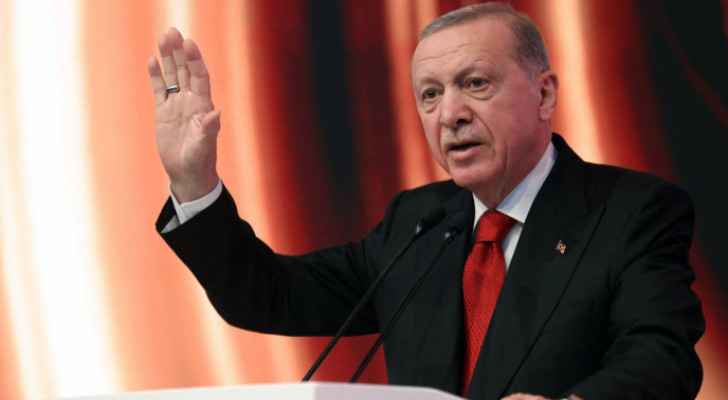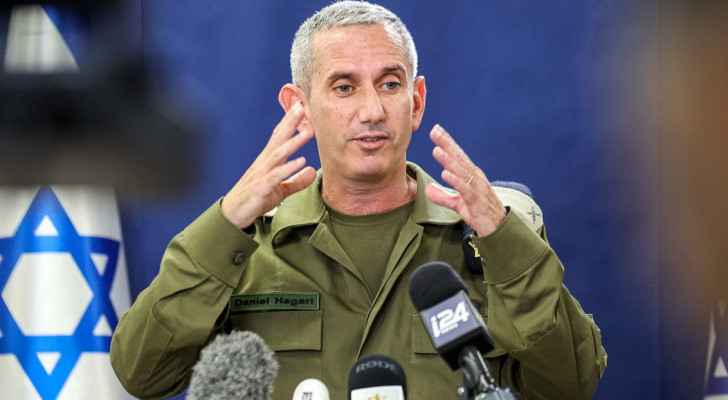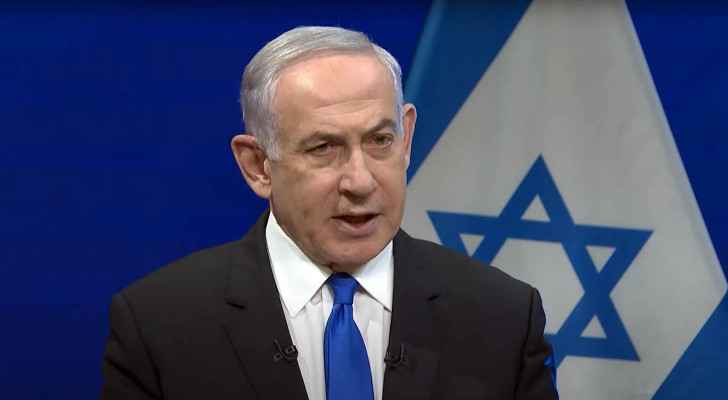What Does Saad al-Hariri’s Political Shift Mean? - By Eyad Abu Shakra, Asharq Al-Awsat
It was truly dramatic how Lebanon’s ex-Prime Minister Saad al-Hariri announced the ‘end of the road’ for the ‘Presidential Settlement’ of 2016, which resulted in electing General Michel Aoun as President, and him taking over as Prime Minister.
The ‘settlement’ that now seems dead was then seen by many Lebanese as an illogical deal with no justification but gaining time, while Lebanon was under the burden of an effective regional occupation armed that was too powerful for the Lebanese to end.
Several considerations led to this catastrophic deal, which – at least on paper – gave the armed occupation the legitimacy it has always lacked. Among these considerations were:
1- The animosity of Aoun - as well as his Christian sectarian base - towards the ‘Taif Accords; and subsequently the Sunni leadership built by the late Rafic al-Hariri, made him in February 2006 enter an alliance with Hezbollah, the strongest theocratic Shi’ite organization. Indeed, Hezbollah, and those behind it in Iran, were never less hateful to ‘political Sunnism’ than Aoun and his followers.
2- The Aoun – Hezbollah alliance has been the main beneficiary from Washington’s ‘soft’ stance and its silence towards it. The alliance has done even better, as the Middle East policies of former US President Barack Obama showed that the White House was not only willing to co-exist with the Iranian regime, but actually accepted Tehran’s de facto hegemony over most of the Middle East.
3- As the survival of the Assad regime in Syria was secured, thanks to strong Iranian and Russian support, the lukewarm international position developed into an intentional letting down of the Syrian Uprising, under the pretext of ‘confronting terrorism and extremism’. This situation had its own repercussions in Lebanon, where Hezbollah was one of the primary military backers of Assad’s regime, while Aoun and his pro-Iran Shiite ally used “saving Lebanon from ISIS” as an excuse to resurrect the old ‘Coalition of Minorites’ against ‘Political Sunnism’ after accusing the Sunnis of being a ‘fertile ground’ for terrorism and extremism.
4- The international community’s betrayal of the Syrian Uprising, which both almost killed it off, and helped besiege the Lebanese Sunnis politically, convinced many Lebanese Christian that Aoun’s gamble on Hezbollah was perhaps a wise bet, that reflected the ‘General’’s wisdom and his good understanding of global politics. This feeling within the Christian community pushed Aoun’s opponents and critics into a corner; thus pushing the ‘Lebanese Forces’ party, Aoun’s strongest Christian opponents, to turn the page and sign an agreement with Aoun’s Free Patriotic Movement (FPM) in 2016. This agreement, according to which the LF would support the election of Aoun as President, became known as the ‘Mi’rab Agreement’; noting that Mi’rab is the village where Dr. Samir Geagea, the LF leader, resides.
5- The agreement between the FPM and the LF - the two largest Christian parties - to nominate Aoun deprived Saad al-Hariri (the strongest Sunni leader) and Walid Jumblatt (the foremost leader of the Druze) of any excuse to oppose their old foe Aoun; as the latter now enjoyed the widest possible Christian support to fill the highest post constitutionally reserved for the Christian Maronite community.
The above-mentioned five considerations, in addition to the regional and international positions, allowed the election of Aoun in 2016, although he was for years the declared candidate of Hezbollah. In fact, in order to force his election Hezbollah disrupted Lebanon’s political life on several occasions.
This achievement secured Iran’s ‘occupation’ (through Hezbollah) a political ‘legitimacy’ the Iranians were keen to cement. This goal required two more steps while Hezbollah keeps its arms and its security, financial, and political structures.
The First was to adopt an electoral law that suits Iran and ensures the election of a pliant pro-Tehran parliament where Hezbollah and its allies would win a majority of seats thanks to its exclusive arms’ advantage.
The second was to undermine the ‘Taif Accords’ – whose text was now enshrined in the Lebanese Constitution – through disabling and nullifying it by marginalizing the Prime Minister, diminishing his powers, and overruling him in favor of the President.
From the standpoint of ‘consociationalism’ (or factional consensus), whereby major sects are represented by its strongest representative leaders, this was the major advantage for Aoun. However, in order to complete the ‘scenario’ the most representative Sunni had to be co-opted, albeit temporarily, in a masterplan he was supposed to understand where it would lead to.
Saad al-Hariri, given his deep knowledge of Aoun’s political history, and the history and aims of Hezbollah, was expected to be aware that he would be used to destroy the ‘Taif Accords’, and cover Iran’s hegemony through Hezbollah. This would lead to the collapse of his credibility within his own sectarian power base.
Thus, when al-Hariri spoke on the 15th anniversary of his father’s assassination and announced the demise of the Presidential settlement’, he candidly declared that there were strong attempts to bringing Lebanon back to the pre-1989 period; i.e., attempts to finish off the ‘Taif Accords’ and bring down ‘Harirism’!
He also talked about the mentality of ‘Wars of Elimination’ which “one time wanted to eliminate the Progressive Socialist Party and its leader Jumblatt, another wanted to eliminate the ‘Lebanese Forces’ even after Mi’rab, a third wanted to eliminate the Popular Uprising, and now its wants to eliminate Harirism and the Future Movement”. Defending why he still went ahead with the said settlement, Hariri explained: “I was trying to ensure stability to the relationship between the Presidency and the Prime Minister’s office; first, because stability merits endurance and patience, and second because disagreement would only lead to disabled institutions”.
Well, this is a noble thing to say; however, politically it is both ill-timed and useless. Regarding the issue of time, the Lebanese economic situation is so critical that people do not believe their political leaders can rally their supporters through stirring up familiar tribal affinities anymore.
As for the issue of uselessness, Hariri’s mistake in going through with what proved to be a ‘suicidal settlement’ was so huge that he failed to convince even some of his most loyal advisors. Those have since moved away from him, and relations soured between him and many of his allies, although some of them would still give him the benefit of the doubt. Furthermore, what happened has happened, whether regarding the barely constitutional electoral law that has been implanted under the shadow of Hezbollah’s arsenal, or the election of a president who wanted to be a foe and an arbiter at the same time.
Thus, Hariri’s ‘uprising’ is necessary but insufficient, in the absence of a serious political vision that can reassure a hungry, worried, and frustrated population that there is a light at the end of the tunnel, and are trustworthy alternatives in the political elite.
Latest News
 King from Madaba: Jordan has always proven its ability to move forward with persistence of Jordanians
King from Madaba: Jordan has always proven its ability to move forward with persistence of Jordanians Safadi discusses war on Gaza with French, German delegations
Safadi discusses war on Gaza with French, German delegations Erdogan arrives in Baghdad for first official visit since 2011
Erdogan arrives in Baghdad for first official visit since 2011 “Israeli” army says it approved plans for “continuation of war in Gaza”
“Israeli” army says it approved plans for “continuation of war in Gaza” Netanyahu vows to increase military pressure on Hamas
Netanyahu vows to increase military pressure on Hamas
Most Read Articles
- Turkey’s Erdogan in rare Iraq visit to discuss water, oil, security
- Safadi discusses war on Gaza with French, German delegations
- King from Madaba: Jordan has always proven its ability to move forward with persistence of Jordanians
- Prosecution lays out ‘criminal conspiracy’ in historic Trump trial
- Jordan sends 51-truck aid convoy to Gaza
- German envoy for Middle East hails Jordan’s role in Gaza aid
- FAO organises workshop on ecosystem-based water solutions
- US Supreme Court weighs ban on homeless people sleeping outside
- Japan hands over ultrasound equipment to the JNRCS
- Jordan applauds Azerbaijan-Armenia border agreement